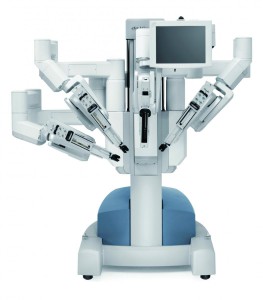Is da Vinci Robotic Surgery Safe?
The da Vinci Surgical System by Intuitive Surgical Inc. is an innovative, $1.5 million robot that performs minimally invasive surgery procedures. The robotic system has been widely praised for its ability to achieve unprecedented accuracy during complex surgeries. Results achieved by da Vinci include less blood loss, fewer complications, faster recovery, and less scarring.

Recent Lawsuits Raise the Question: Is da Vinci Too Good to be True?
In 2012, da Vinci was used in approximately 400,000 surgeries. Although the great majority of these surgeries are considered successful, the use of da Vinci during surgery has led to at least 26 lawsuits. Plaintiffs in these lawsuits have suffered from serious harm including lacerations and burns to their internal tissues and organs, such as intestines. Horror stories include robot’s tiny pieces found inside patient’s body after the surgery and internal organs accidentally cut by robotic instruments. Since 2009, as many as 70 deaths can be attributed to da Vinci’s surgeries.
What Went Wrong in the Mind of the Machine?
If a super-perfect gadget-loaded robot working beyond any surgeon’s capabilities goes crazy, there must be a method in its madness. Several issues that have been discovered:
- Intuitive Surgical may not have timely warned about the danger that the robot’s electrical current may damage patient’s tissues and organs.
- Lacking clear instructions on how to clean robotic instruments, doctors have damaged protective covers, resulting in malfunction.
- Finally, one piece of a robot’s special equipment–robotic scissors–was actually defective.
The Future of Robotic Surgery
While many experts state that robotic surgery certainly should have its place in modern health care, no robot is a substitute for a well-trained, experienced surgeon. Since relatively few surgeons have been accredited to perform da Vinci surgeries by local hospitals, there is a justified concern about the lack of adequate training to perform robotic surgery. Some experts say a machine simply cannot feel human tissue as well as a human surgeon.

Comments